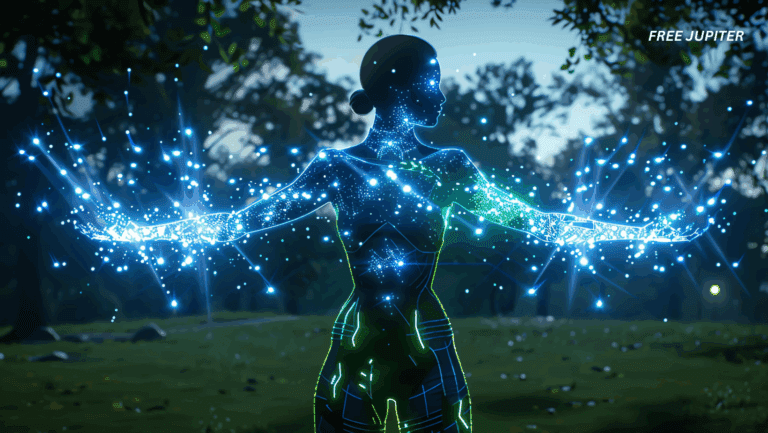In the realm of futuristic health experiments, tech entrepreneur Bryan Johnson stands out as a real-life version of a sci-fi character—an ultra-disciplined, data-obsessed millionaire determined to outsmart aging. But despite investing millions and undergoing years of personal testing, one of his most hyped anti-aging strategies—rapamycin, a drug believed by some to hold the secret to longer life—backfired spectacularly. Instead of slowing his biological clock, it may have made him age faster.
Let’s break it down in a way that doesn’t require a medical degree—and explore what this failed experiment tells us about the unpredictable frontier of longevity science.
🚫 The Anti-Aging Drug That Did the Opposite
Rapamycin might not be a household name, but in the world of anti-aging research, it’s practically a celebrity. Originally discovered in the soil of Easter Island (yes, really), the drug was first used to prevent organ rejection in transplant patients. Then researchers made a surprising discovery: when given to mice in small, carefully controlled doses, rapamycin helped them live up to 30% longer.
That discovery sent shockwaves through the longevity community. Scientists began to wonder: If it works in mice, could it work in humans too?
Bryan Johnson thought so. For five years, he took rapamycin as part of a strict anti-aging protocol. He wasn’t guessing, either—his regimen involved constant blood tests, full-body scans, and tracking of epigenetic age markers, which estimate how “old” your body behaves on a cellular level.
But earlier this year, Johnson made a surprising announcement: he was stopping rapamycin. Why? Because it might have been doing more harm than good.
- Negative effects on metabolism, possibly reducing his body’s ability to regulate energy and weight
- Weakened immune response, leaving him potentially more vulnerable to illness
- Acceleration in epigenetic aging, meaning his body seemed to be getting older, not younger
Read more: 96-Year-Old Reveals Her Secret to a Vibrant Life—And It’s Surprisingly Simple
💊 From Miracle Drug to “Maybe Not”: A Bigger Conversation
Johnson’s experience doesn’t mean rapamycin is dangerous or useless—but it does remind us that longevity science is still experimental. Much of the hype around anti-aging drugs comes from animal studies, not human trials. And humans are, as you’d guess, much more complicated.
It also illustrates the risks of self-experimentation, even when it’s carefully monitored. There are no long-term studies showing how rapamycin affects healthy people over decades, and while researchers are eager to find ways to slow aging, there’s still a lot we don’t know.
That hasn’t stopped the growing wave of health enthusiasts—some wealthy, others just curious—from trying new, often radical, methods to extend life.
🧪 Similar Stories from the World of Extreme Longevity
Johnson isn’t the only one trying to hack the aging process with science and spreadsheets. Let’s look at a few other headline-grabbing examples of modern biohacking gone bold—or slightly sideways:
🔬 David Sinclair and the NAD+ Craze
Harvard biologist Dr. David Sinclair is one of the most recognizable names in aging research. His work focuses on compounds that boost NAD+, a molecule critical for energy production in cells and believed to play a role in aging. Sinclair takes NMN (a precursor to NAD+) daily and claims it makes him feel decades younger. He also takes resveratrol, the same antioxidant found in red wine.
While his regimen is less extreme than Johnson’s, Sinclair also acknowledges that the science is still emerging. NMN was recently banned from being sold as a supplement in the U.S. after the FDA decided it needs to be classified as a drug for further study.
💉 Young Blood Experiments at Ambrosia
A startup called Ambrosia made headlines when it began offering transfusions of young plasma—blood components collected from people aged 16 to 25—into older adults, claiming it could reverse aging. Sound like a vampire novel? You’re not alone.
Although the company quickly attracted interest from the wealthy elite, the U.S. FDA issued a statement in 2019 warning that such procedures had no proven benefits and could carry serious risks. Johnson himself tried a version of this—receiving plasma from his teenage son—but later stopped, admitting it had no measurable benefits.
Read more: Instead of Cutting Down Trees, Japan Moves Them to Make Room for Roads
🥗 Caloric Restriction: The Simpler Side of Longevity
While billionaires are dabbling in drugs and gene therapy, a quieter longevity movement has been gaining traction through something far simpler: eating less. Studies going back decades suggest that calorie restriction, done safely, can increase lifespan in mice and improve health markers in humans.
People like Dr. Valter Longo, a biogerontologist at USC, promote fasting-mimicking diets as a more natural way to slow aging without the risk of medications or supplements. Unlike Johnson’s 50-pill-a-day routine, Longo’s approach is relatively gentle—and, crucially, doesn’t require millions of dollars.
🎬 Bryan Johnson’s $2 Million-a-Year Routine
Even after ditching rapamycin, Johnson hasn’t given up on the dream of eternal youth. His daily lifestyle is still anything but ordinary:
- Wakes up at 5 AM and follows a strictly timed eating window
- Takes over 50 supplements and medications daily
- Monitors over 100 health markers with weekly blood tests
- Practices controlled breathing and sleep optimization
- Performs light therapy, laser facials, and even collects his own stool samples to analyze gut health
All of this adds up to a $2 million annual price tag for what Johnson calls “Project Blueprint”—his attempt to become the most measured and optimized human being on the planet.
Netflix is turning his journey into a documentary titled “Don’t Die: The Man Who Wants to Live Forever”, offering viewers a deep dive into one man’s quest to defeat mortality, or at least stall it for a few decades.
🧬 What Can We Learn from All This?
Johnson’s experience shows us that even with cutting-edge science and unlimited funding, aging is not easily tamed. The human body is a web of complex systems, and tweaking one variable can lead to surprising—and sometimes disappointing—outcomes.
Here’s the takeaway:
- Science needs time. Just because something works in mice doesn’t mean it’s ready for the masses.
- Aging is natural. Slowing it down might be possible, but reversing it entirely is still a dream.
- Personalized medicine is key. What works for one body might not work for another.
- Longevity isn’t just about life span—it’s about health span. Living longer only matters if you’re also living better.
Read more: Study Shows These Sports Provide Greater Benefits Than Running or Swimming
🧠 Final Thoughts: A Modern-Day Alchemist, With Caution
Bryan Johnson may not have found the secret to eternal youth, but his willingness to test the limits of science has undeniably moved the conversation forward. His rapamycin misfire serves as a reality check: there’s no shortcut to immortality, no miracle pill that guarantees youth.
But in trying—and failing—he’s giving researchers valuable data, shining a light on what’s still unknown, and showing the world just how far some are willing to go in the battle against time.
And maybe that’s the real win: not eternal life, but the relentless pursuit of understanding how to live well for as long as possible—even if it means making a few very expensive mistakes along the way.










